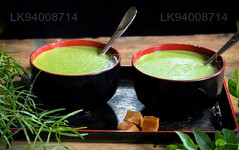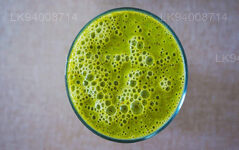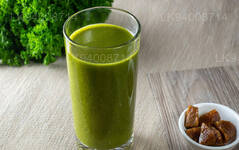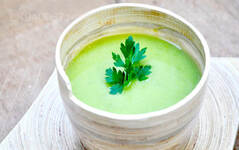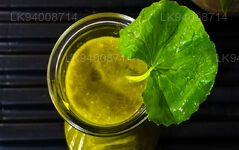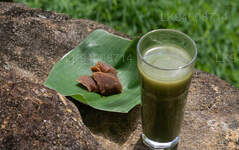Kola kenda (කොළ කැඳ)
This is part of our series on using Sri Lanka’s herbs for everyday use for better health, especially the boosting of immunity. We will be using diverse books and advice from indigenous doctors for this series. For the first weeks, until we complete much of the book, we will focus on the publication ‘Hela Weda Athpotha’ authored by Ayurveda Shasthri, Ayurveda Doctor Palitha Shri Gagana Arachchige and published by Dilmah Conservation. We are continuing from last week focusing on Kenda varieties and its uses while also featuring the Ath Beheth Mangusawa segment of the book that focuses on minor ailments that could be treated at home with generally found herbs prior to seeking medical advice. Below is the continuing series on kenda which we end this week and begin the Ath Beheth series of the book ‘Hela Weda Athpotha’
Kenda (traditional Sri Lankan broth) is synonymous with the traditional diet of Sri Lanka and there are Kenda types that vary from those using our herbal leaves that are known as kola kenda and those using garlic or only rice (roasted kekulu haal) and referred to as ‘dry kenda’ (viyali kenda).
The rice that is advised in the book to be used is red nivudu variety which has to be kept soaked for a while and then pounded in a wangediya. Separately small red onions, garlic, ginger (amu inguru) should be finely chopped and boiled with the rice. This should be boiled very well.
The leaves need to be well washed and cleaned and pounded well for the juice to be separated. Once again the leaf extracts should be pounded along with the scraped coconut and the juice of this too added to the juice already extracted. This, along with the coconut milk should be added to the rice after it is well boiled.
It is best to switch off the cooker soon after adding the leaf extract so as to retain its nutrition. Why coconut is used in the broth is to ensure that the carotene levels of the leaves are not evaporated. The coconut absorbs and help retain this vital nutrition within the liquid. Diya lunu (salt) should be added to the kenda.
Kola kanda (also known as Kola kandha or Kola kenda) (Sinhala: කොළ කැඳ) is a traditional herbal congee or gruel made from raw rice, coconut milk and the fresh juice of medicinally valued leafy greens. The leaves may include gotukola, karapincha, welpenela, iramusu, hatawariya, polpala, karapincha or ranawara, depending upon the type of ailment that is being sought to prevent or cure. It is usually served at breakfast, steaming hot, with a piece of jaggery (palm sugar) to counter the bitterness of the herbal leaves.
According to ancient texts, including the Dīpavaṃsa and Mahāvaṃsa, the habit of consuming Kola kanda originated with the Buddhist culture. It is eaten by Buddhist monks in the morning, as a means of sustenance. As part of the Buddhist monastic code, monks are only permitted two meals a day (breakfast and lunch) and following a period of not consuming any solid food since lunch the previous day Kola kanda provides the monks with the necessary restoration and rejuvenation to commence their daily activities.
Ingredients
The oldest recorded recipe for Kol kanda mentions the following ingredients and their amounts,
- Red Rice - one fistful per person
- Gotukola - roughly chopped - one fistful
- Grated Coconut - one fistful
- Water
- Ginger - one to two slices - finely chopped
- Garlic - six gloves - finely chopped
- Salt - as required for taste
Preparation
The red rice is ground on a grindstone until broken into smaller pieces, the selected herb is also ground in a similar manner until the juice is extracted. Approximately three cups of water are added to the broken rice grains and boiled,and then milk obtained from the grated coconut and garlic is added. The mixture is stirred until the rice becomes soft. The herbal extract is added last with salt and removed from the heat to avoid destroying the nutrients from the herbs.
【Text by Lakpura™. Images by Google, copyright(s) reserved by original authors.】

